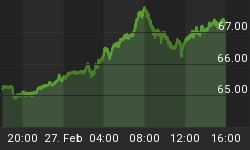For all the hand-wringing about the threat to liberty and constitutional government posed by the major party presidential candidates, there is little discussion of how this threat is due to the political class's long history of supporting expanded presidential power. There is also little talk of how the imperial presidency is just as much a creation of Congress as it is of power-hungry presidents.
Since war is the health of the state, it is not surprising that presidential power expanded in tandem with the expansion of the warfare state. Perhaps the best, and most terrifying, example of how "national security" has been used to justify giving the president dictatorial powers is the Defense Production Act.
This law, which is regularly renewed with large bipartisan congressional majorities, grants the president broad powers over the economy. For example, it explicitly authorizes the president to tell manufacturers what products to make, impose wage and price controls, "manage" labor relations, control the use of natural resources, and even allocate credit. All the president need do to exercise these powers is declare a national emergency.
The Defense Production Act is hardly the only example of congress's complicity in the growth of presidential power. For example, Congress rarely, if ever, insists that the president seek a formal declaration of war before commencing military action. When I attempted to force Congress to vote on a declaration of war against Iraq, a prominent member of Congress, who was considered a constitutional scholar, told me that the constitutional requirement that Congress declare war was an "anachronism."
Many neoconservatives claim that the president's status as commander in chief gives him the inherent authority to take whatever actions he deems necessary for national security. This turns a limited grant of power intended to preserve civilian control of the military into an unlimited authorization for military control of civilians.
Presidents have hardly limited their abuse to foreign policy. Ironically, many conservatives who (correctly) oppose abuses of presidential authority in the domestic sphere support giving the president unlimited authority over "national security." These conservatives fail to realize unfettered presidential discretion in foreign policy will inevitably lead to presidential usurpation of Congress's authority in domestic matters.
Modern presidents routinely use executive orders to create new laws or rewrite existing statutes. President George W. Bush regularly usurped congressional authority via signing statements listing the parts of congressionally-passed legislation he would refuse to enforce.
In his 2014 State of the Union address, President Barack Obama actually bragged about his intention to use his "pen and phone" to go around Congress via executive orders and regulations. Some members of Congress do criticize presidential usurpation of congressional authority. However, few members of Congress raise concerns about presidential overreach when the White House is occupied by a member of their political party. This suggests that most legislators are more concerned with partisanship than with protecting their constitutional authority.
As long as people expect the president to provide economic and personal security, the presidency will be a threat to liberty regardless of who holds the office. Therefore, instead of obsessing over whether demagogue A is less dangerous than demagogue B, we must focus on spreading the ideas of liberty. Only when a critical mass of the people demand it will we return to limited constitutional government. The growth of the liberty movement gives me hope that we will soon see a day when our peace, prosperity, and liberty is not threatened by the results of the presidential, or any other, election.
Buy Ron Paul's latest book, Swords into Plowshares, here.















